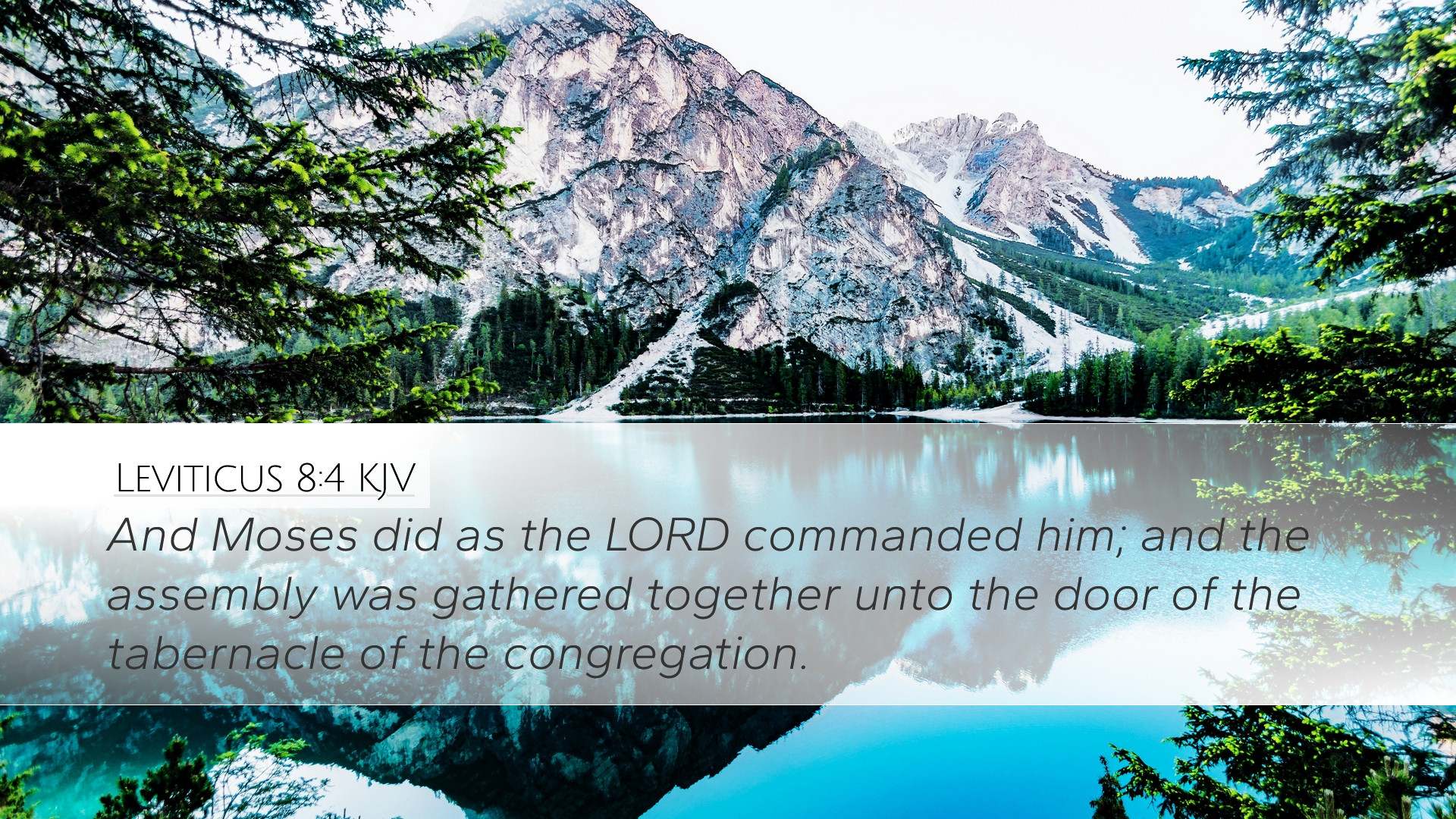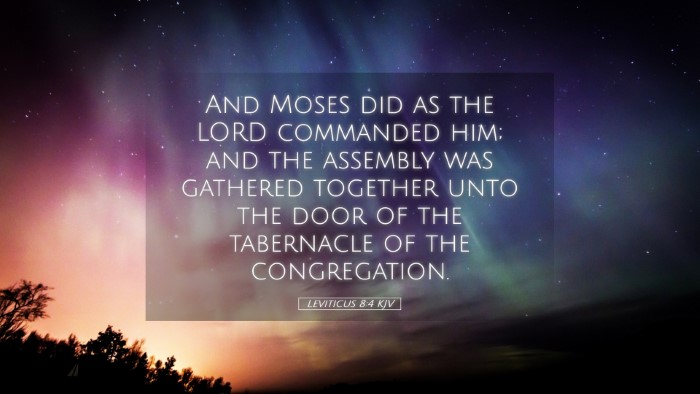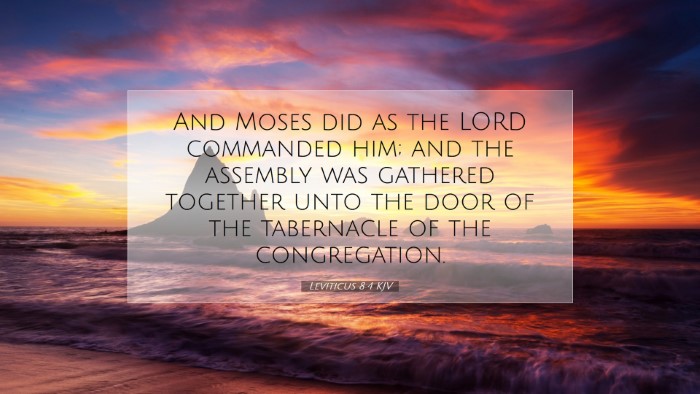Commentary on Leviticus 8:4
Verse: "And Moses did as the LORD commanded him; and the elders of the congregation called the congregation together unto the door of the tabernacle of the congregation."
Introduction
The verse Leviticus 8:4 sets a significant tone for the events that unfold in the consecration of Aaron and his sons as priests. This act not only signifies the establishment of the Levitical priesthood but also embodies the essence of obedience to God's commands. Understanding this verse in the context of the broader chapter and the entire Book of Leviticus provides insights essential for pastors, students, theologians, and Bible scholars.
1. The Command of God
Obedience to Divine Instruction
Moses’ compliance with God's directives is pivotal. Matthew Henry comments on the importance of obedience in the life of a leader, emphasizing that personal fidelity to God's word is foundational for spiritual authority. The act of calling the congregation together at the door of the Tabernacle illustrates that Moses was performing this duty not under human authority but directly in obedience to God’s will.
Implications for Leadership
This verse illustrates a critical principle for leaders within the Church: they must act in accordance to God’s commands rather than their own understanding. Albert Barnes points out that true leadership entails gathering the people in unity around the divine purpose, which is markedly seen in Moses' actions.
2. The Role of the Elders
Cohesion in Leadership
The elders' role in this consolidation serves as a reminder of the importance of established leadership structures within the community of faith. Adam Clarke notes that the presence of elders signifies both authority and the collective agreement of the community in following divine instructions. This next step in the consecration process reflects the communal aspect of worship and governance.
The Function of Eldership
- Spiritual Guardianship: Elders are chosen to guide and protect the faith community, reminding us of their pastoral duties.
- Collaborative Decision-Making: Their involvement fosters a model of shared leadership, demonstrating a strong community commitment to God's will.
- Accountability: The elders remind believers of the importance of accountability and collective wisdom in decision-making.
3. Calling the Congregation
Gathering for Divine Purpose
The act of calling the congregation together is significant. The Tabernacle, as noted by Barnes, is the appointed place of meeting with God, thus establishing the importance of communal worship and the Holy Assembly. This emphasizes that worship is not an isolated experience but is meant to involve the entire community of faith.
Theological Significance of the Assembly
The gathering signifies a collective acknowledgment of God’s authority and purpose. Clarke adds that coming together to the door of the Tabernacle was symbolic of coming before God to seek His guidance and blessing, which is an essential aspect of ministerial responsibilities. In the context of the New Covenant, this foreshadows the communal aspects of worship observed in the early church (Acts 2:42-47).
4. The Door of the Tabernacle
The Threshold of Holiness
The entry point to the Tabernacle is loaded with meaning. To stand at the door implies an interface between the holy and the common. As Henry remarks, the Tabernacle represented God's dwelling place among His people, and standing at its door symbolizes access to His presence. This spatial representation calls attention to the holiness of God and the need for preparation to engage with Him.
Access to God Through Christ
For the Christian observer, the New Testament elaborates significantly on this idea of access. The door that Moses stood before can be seen as a type of Christ, who states, "I am the door" (John 10:9). Thus, the act of gathering has its culmination in the recognition of Jesus as the mediator who grants believers access to the Father.
Conclusion
Leviticus 8:4 lays a foundational understanding of priestly consecration, leadership, community involvement, and the reverence due to God in worship. This verse serves not only as a historical record but as a living lesson for today’s Church. As leaders and members of the body of Christ, attention to obedience, communal engagement in worship, and recognition of God’s holiness are enduring principles that guide faithful living.
For theologians and scholars, the exploration of Leviticus 8:4 invites deeper reflection on how these ancient practices inform contemporary ecclesiology and our understanding of God’s redemptive work in both the Old and New Testament contexts.


